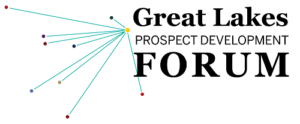
In addition to the discussion sessions and team activity, Helen Brown of the Helen Brown Group gave the keynote address and chose to format her talk to match the overall conference format–rather than giving a speech, she gave a Q&A session in which conference attendees could ask questions about her career trajectory, research methods, and her thoughts and predictions about the prospect development field.
Culture, identity, and fundraising ethics were strong themes at the conference, both as planned discussion topics and as a common thread through other discussion sessions and informal conversations. Here were some of the main questions and takeaways:
- Prospect development professionals rarely make policy decisions when it comes to nonprofit programming, but are gatekeepers when it comes to the donor base. Prospect researchers, analysts, and managers have the unique opportunity to push for change at organizations regarding how donors are identified, cultivated, and stewarded. The donor base has a significant impact on the internal culture of a given nonprofit–so prospect development itself is a form of power within nonprofits.
- How can nonprofits, which are often a white space, commit to inclusion and diversity in its donor base without resorting to prospect development that uses stereotypes and other racist assumptions? For example, several conference attendees talked about being asked to pull past donor lists based on national origin and ethnicity, with the assumption that say, Indian-born donor will want to support an arts project in Mumbai. How can prospect development professionals challenge these ways of thinking?
- For researchers that deal with very high net-worth donors, what are the new wealth indicators among the elite? What are the new ways the very wealthy are engaging in philanthropy? If as F. Scott Fitzgerald wrote, “The rich are another country,” what is the most recent ethnographic data?
- At a discussion on fundraising ethics, due diligence, and gift acceptance, conference attendees reported that they received very little or no instruction on gift acceptance guidelines. Most reported that their ideas about gift acceptance policies came from their own observations at the organization, rather than explicit conversations.
Other tips and takeaways:
- Apparently, St. Jude Children’s Research Hospital employs teams of anthropologists to do research on their donors (!!!) The Philanthropologist plans to learn more about this so stay tuned.
- Several higher education fundraisers reported that as they increase their international fundraising, there is more demand for polyglot prospect development professionals. To supplement their shop’s knowledge, universities are employing multilingual student workers to do research.
- In a discussion session titled, “Incentives Beyond Pay” attendees shared and brainstormed ways that they reward employees and create an attractive work environment when they don’t have the option of increasing pay. Flexible work came up as a very popular incentive, which is in line with trends in other sectors. In informal discussions during the conference, childcare assistance came up as a radical–but strongly desired–way of retaining parents and increasing gender equity at work.
For a full list of the programming topics (including downloadable notes and presentations) and more information about the conference, you can visit the Great Lakes Prospect Development Forum website.